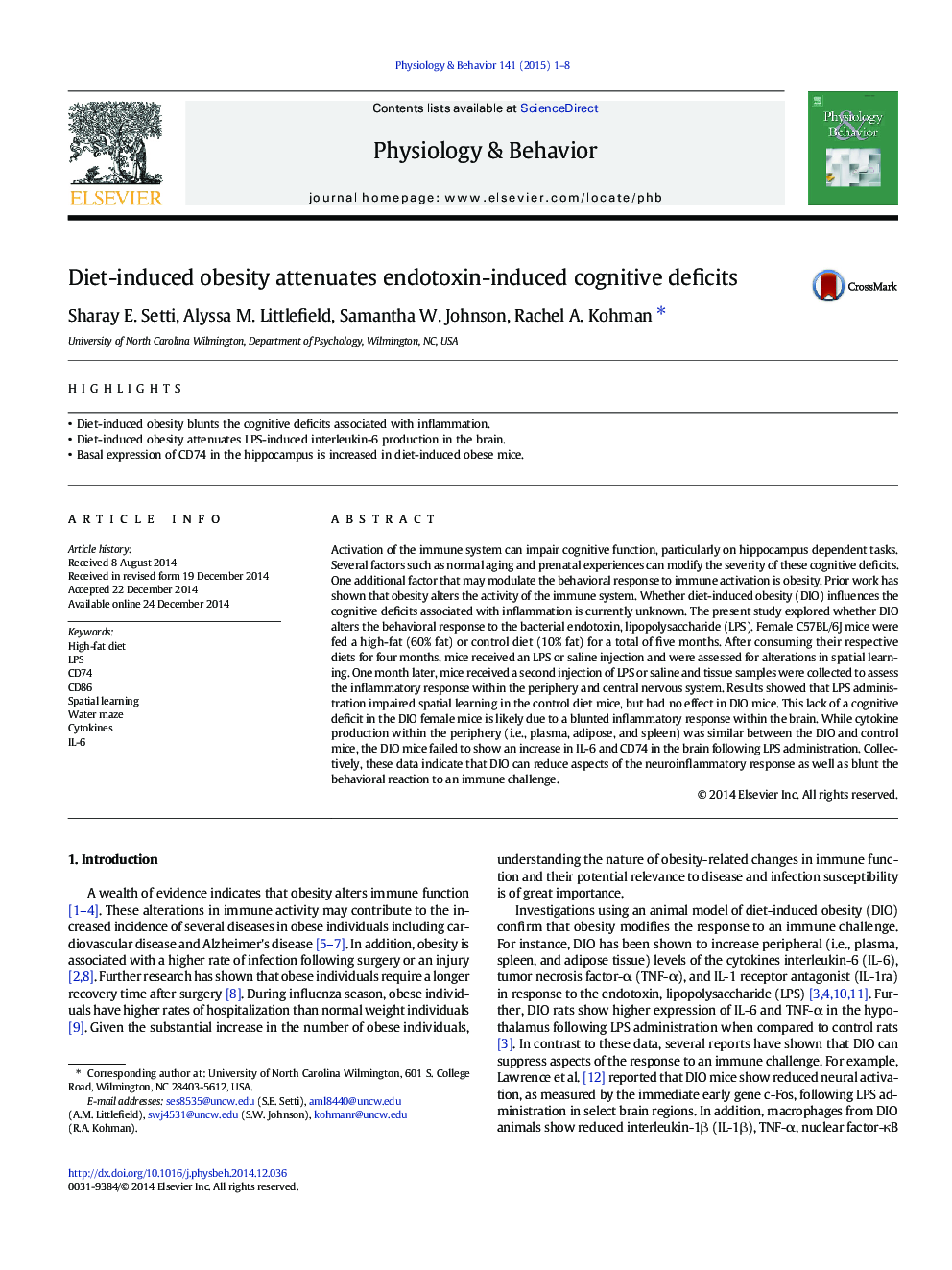| Article ID | Journal | Published Year | Pages | File Type |
|---|---|---|---|---|
| 5923729 | Physiology & Behavior | 2015 | 8 Pages |
â¢Diet-induced obesity blunts the cognitive deficits associated with inflammation.â¢Diet-induced obesity attenuates LPS-induced interleukin-6 production in the brain.â¢Basal expression of CD74 in the hippocampus is increased in diet-induced obese mice.
Activation of the immune system can impair cognitive function, particularly on hippocampus dependent tasks. Several factors such as normal aging and prenatal experiences can modify the severity of these cognitive deficits. One additional factor that may modulate the behavioral response to immune activation is obesity. Prior work has shown that obesity alters the activity of the immune system. Whether diet-induced obesity (DIO) influences the cognitive deficits associated with inflammation is currently unknown. The present study explored whether DIO alters the behavioral response to the bacterial endotoxin, lipopolysaccharide (LPS). Female C57BL/6J mice were fed a high-fat (60% fat) or control diet (10% fat) for a total of five months. After consuming their respective diets for four months, mice received an LPS or saline injection and were assessed for alterations in spatial learning. One month later, mice received a second injection of LPS or saline and tissue samples were collected to assess the inflammatory response within the periphery and central nervous system. Results showed that LPS administration impaired spatial learning in the control diet mice, but had no effect in DIO mice. This lack of a cognitive deficit in the DIO female mice is likely due to a blunted inflammatory response within the brain. While cytokine production within the periphery (i.e., plasma, adipose, and spleen) was similar between the DIO and control mice, the DIO mice failed to show an increase in IL-6 and CD74 in the brain following LPS administration. Collectively, these data indicate that DIO can reduce aspects of the neuroinflammatory response as well as blunt the behavioral reaction to an immune challenge.
